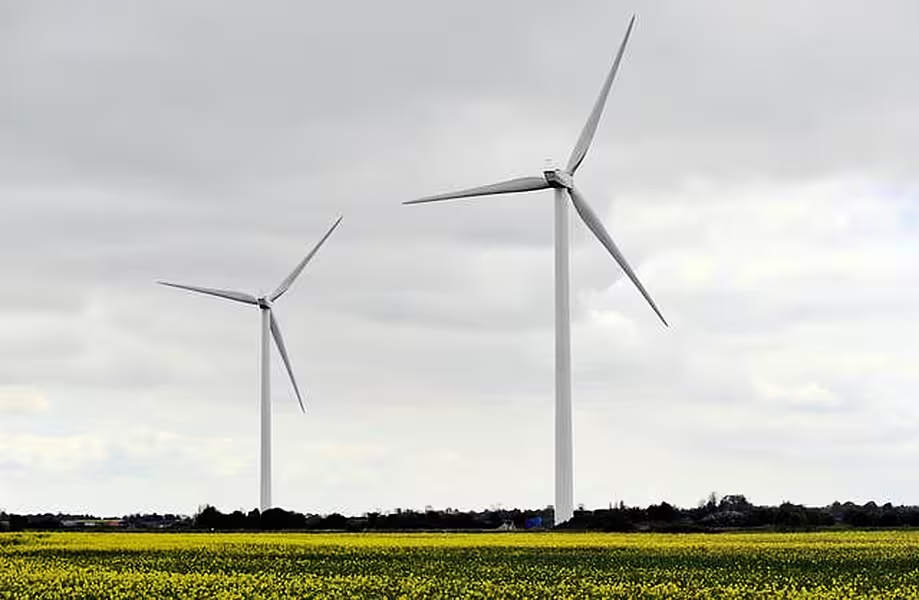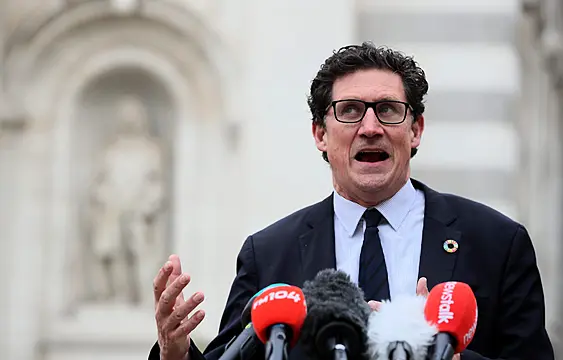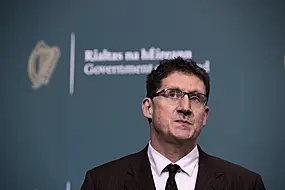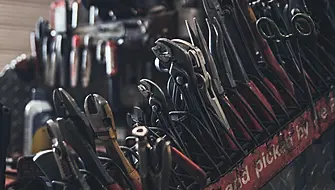Opposition parties have condemned the Government for failing to provide sufficient commitment to a “just transition” in the forthcoming Climate Action Bill.
The Bill sets out the plan for the State to transition to a carbon-neutral economy by no later than 2050.
But there are concerns that the legislation does not have sufficient protections for sectors which will suffer job losses as a result.
Social Democrats climate spokeswoman Jennifer Whitmore said: “The minister says that the principles of just transition are contained in the Bill.
“They’re absolutely not though – it’s referred to once in the entirety of the Bill, there is no definition for it, there’s no guidance as to what it means.
“I think that this is a golden opportunity to incorporate it fully into the Bill, and to ensure that we meet our targets in a fair manner.”
She told the Oireachtas Committee on the Environment on Tuesday: “It needs to be a very proactive and targeted, focused approach taken with this.
“It can’t happen afterwards because it won’t happen properly. A reactive transition is not a good transition, and it won’t happen organically.”
Just Transition fund
The Programme for Government commits to a Just Transition Fund to retrain workers and generate sustainable employment in green enterprise.
But efforts by the Opposition to strengthen it in legislation through amendments to the Climate Action Bill have been rejected by Government.

Labour TD Duncan Smith said the commitment in the Programme for Government is not sufficient, and needs to be underpinned by legislation.
“We don’t see it to the extent with which we are comfortable or confident that it’s actually going to make a real difference,” he said.
He added: “What was written in the Programme for Government will remain an aspirational document until it is reflected in legislation and other actions from Government.
“We are not seeing that in this, as it’s currently being presented and debated.”
Bord na Móna
There have been significant job losses at Kildare-based Bord Na Móna, as it transitions from a producer of peat briquettes to a climate solutions company.
Independent TD Carol Nolan, who represents the Laois-Offaly constituency, where much of the firm’s peat was harvested, said these jobs have not been replaced.
“What’s happening on the ground, and I can tell you from one of the counties most affected by your transition – Co Offaly – it’s not just, it’s far from it.
“County Offaly will be bearing the brunt of the greatest job losses – 53 per cent of all job losses in the Midlands will be in County Offaly.
“Not one single job has been created, so it’s very difficult to see when you’re detached from something, but I’m there on the ground, speaking to the workers, speaking to the community day in, day out.”
Independent TD Denis Naughten, a former climate minister, noted that the legislation as it stands only requires the minister to have regard to a just transition.
“The Government of the day, once they actually tick the box in relation to just transition, they can proceed and do whatever they like,” he said.
Fine Gael’s Richard Bruton, also a former climate minister, defended the Bill and said the proposed amendment gives the impression that “change is avoidable”.
“If we wait and allow an environment to develop where people feel that we can put off change until another day, then we’ll actually do a disservice to those various sectors and communities that we’re trying to support,” he said.
European law
Minister for Climate Eamon Ryan cited the State’s commitments under European law as part of the reason he would not support the amendment.
He told the Committee: “We also have to have regard to European regulations which require us to show the socio-economic strategy behind any climate strategy.
“So at every stage in the process we have to check to see does it meet our social as well as our environmental and economic objectives.

“I expect a huge number of community projects to be up and running very, very quickly, to help make this transition happen.
“It will continue to evolve, we will see further European funding available to support a just transition.
“Critically, we will go to the next phase of this trust transition process where we will engage with the likes of the National Economic and Social Council, as to how we spread this approach not just in the Midlands, but in other parts of the country.”







